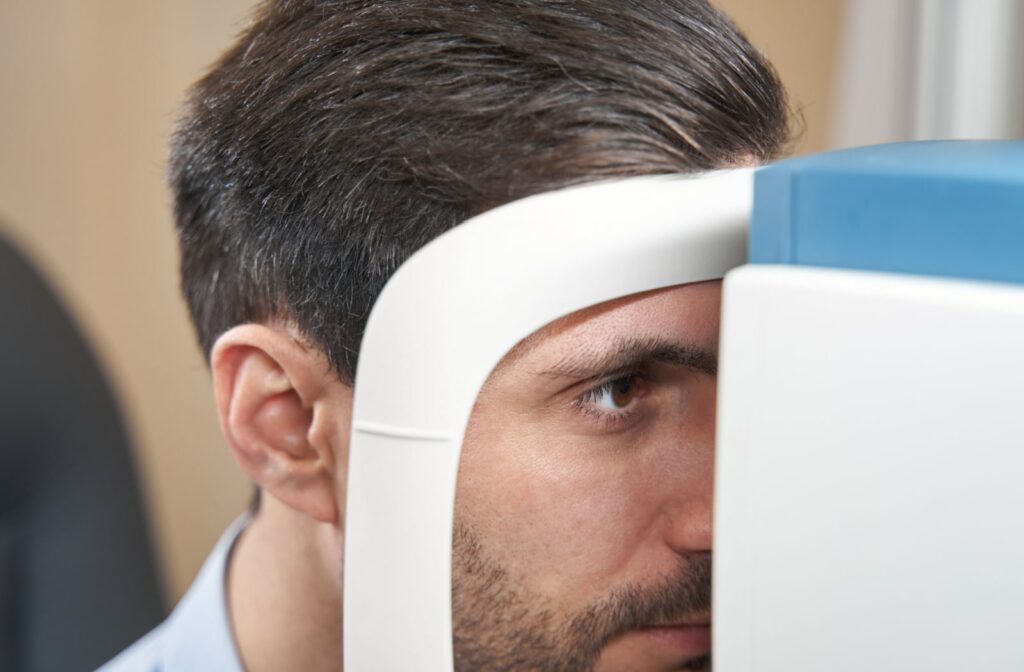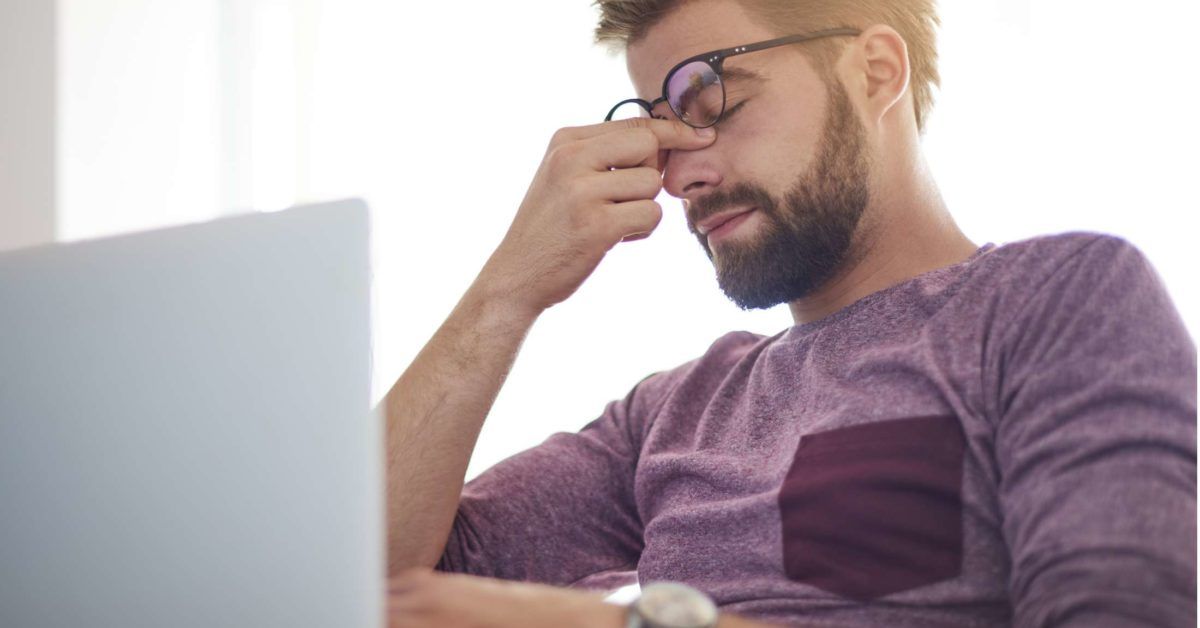All Categories
Featured
Opening Opportunities: Comprehensive Low Vision Rehab Alternatives.
Dealing with low vision can provide unique obstacles, however modern-day rehab approaches encourage individuals to adjust and thrive. From advanced modern technology to hands-on training, there are numerous alternatives designed to enhance day-to-day live and foster self-reliance. Right here's a comprehensive check out the varied rehab services available for those with reduced vision.
The Function of Low Vision Rehab
Reduced vision rehabilitation concentrates on assisting people maximize their remaining vision and create skills to manage their surroundings. With a mix of tools, training, and individualized support, rehabilitation programs enhance functionality and boost confidence in browsing daily activities.
Trick Reduced Vision Rehab Options
Personalized Visual Aids
High-Powered Magnifiers: These tools come in portable, wearable, or electronic formats, enabling customers to read, create, or sight objects up close.
Telescopic Glasses: Perfect for enhancing distance vision, these glasses help with tasks such as watching television or reading signs.
![]()
Filter Lenses: Tinted lenses lower glare, enhance contrast, and offer UV protection, boosting convenience and presence.
Technical Innovations
Digital Zoom Instruments: Desktop computer and mobile gadgets offer adjustable zoom, making it possible for much easier access to printed materials and electronic content.
![]()
Voice-Assisted Modern technology: Display readers, voice-enabled smart devices, and AI-driven applications assist customers browse the digital globe much more successfully.
Wearable Vision Aids: Smart glasses furnished with cameras and auditory feedback give real-time help with analysis, recognizing things, and spatial alignment.
Specialist Training Programs
Orientation and Wheelchair Training: This program instructs individuals just how to relocate with confidence within their neighborhoods and homes, commonly integrating walking canes or guide canines.
Daily Living Abilities: Specialized training equips individuals with methods to carry out essential tasks such as cooking, clothing, and managing family chores.
Adaptive Visual Strategies: Specialists guide people on leveraging field of vision or scanning approaches to compensate for vision loss.
Ecological Alterations
![]()
Simple modifications at home or job can considerably boost access:
Making use of different colors for much better object differentiation.
Including task lighting to boost visibility.
Marking devices with tactile indicators for simpler procedure.
Psychological and Social Support
Handling vision loss often includes emotional adjustments. Support teams and therapy services provide a secure space to build and share experiences resilience.
Peer mentoring programs connect individuals with comparable difficulties, promoting sociability and shared options.
Accessing Recovery Solutions
Reduced vision rehabilitation services are commonly offered via:
Specialized Clinics: Ophthalmologists and eye doctors educated in low vision care provide customized analyses and solutions.
Nonprofit Organizations: Groups like the American Structure for the Blind and VisionAware use sources, assistance, and recommendations.
Community Centers: Local solutions may supply affordable or cost-free training and accessibility to assistive tools.
Final Ideas
Reduced vision does not need to suggest a reduced lifestyle. With the ideal mix of tools, training, and assistance, individuals can gain back self-reliance and appreciate meeting lives. By checking out the countless recovery options available, those with reduced vision can locate approaches that function best for their unique demands and scenarios. If you or a liked one deals with vision obstacles, do not hesitate to connect to a reduced vision expert to start the trip toward empowerment and adaptability.
Dealing with low vision can provide unique obstacles, however modern-day rehab approaches encourage individuals to adjust and thrive. From advanced modern technology to hands-on training, there are numerous alternatives designed to enhance day-to-day live and foster self-reliance. Right here's a comprehensive check out the varied rehab services available for those with reduced vision.
The Function of Low Vision Rehab
Reduced vision rehabilitation concentrates on assisting people maximize their remaining vision and create skills to manage their surroundings. With a mix of tools, training, and individualized support, rehabilitation programs enhance functionality and boost confidence in browsing daily activities.
Trick Reduced Vision Rehab Options
Personalized Visual Aids
High-Powered Magnifiers: These tools come in portable, wearable, or electronic formats, enabling customers to read, create, or sight objects up close.
Telescopic Glasses: Perfect for enhancing distance vision, these glasses help with tasks such as watching television or reading signs.

Filter Lenses: Tinted lenses lower glare, enhance contrast, and offer UV protection, boosting convenience and presence.
Technical Innovations
Digital Zoom Instruments: Desktop computer and mobile gadgets offer adjustable zoom, making it possible for much easier access to printed materials and electronic content.

Voice-Assisted Modern technology: Display readers, voice-enabled smart devices, and AI-driven applications assist customers browse the digital globe much more successfully.
Wearable Vision Aids: Smart glasses furnished with cameras and auditory feedback give real-time help with analysis, recognizing things, and spatial alignment.
Specialist Training Programs
Orientation and Wheelchair Training: This program instructs individuals just how to relocate with confidence within their neighborhoods and homes, commonly integrating walking canes or guide canines.
Daily Living Abilities: Specialized training equips individuals with methods to carry out essential tasks such as cooking, clothing, and managing family chores.
Adaptive Visual Strategies: Specialists guide people on leveraging field of vision or scanning approaches to compensate for vision loss.
Ecological Alterations

Simple modifications at home or job can considerably boost access:
Making use of different colors for much better object differentiation.
Including task lighting to boost visibility.
Marking devices with tactile indicators for simpler procedure.
Psychological and Social Support
Handling vision loss often includes emotional adjustments. Support teams and therapy services provide a secure space to build and share experiences resilience.
Peer mentoring programs connect individuals with comparable difficulties, promoting sociability and shared options.
Accessing Recovery Solutions
Reduced vision rehabilitation services are commonly offered via:
Specialized Clinics: Ophthalmologists and eye doctors educated in low vision care provide customized analyses and solutions.
Nonprofit Organizations: Groups like the American Structure for the Blind and VisionAware use sources, assistance, and recommendations.
Community Centers: Local solutions may supply affordable or cost-free training and accessibility to assistive tools.
Final Ideas
Reduced vision does not need to suggest a reduced lifestyle. With the ideal mix of tools, training, and assistance, individuals can gain back self-reliance and appreciate meeting lives. By checking out the countless recovery options available, those with reduced vision can locate approaches that function best for their unique demands and scenarios. If you or a liked one deals with vision obstacles, do not hesitate to connect to a reduced vision expert to start the trip toward empowerment and adaptability.
Latest Posts
Uncover Auto Services & More: Complete Auto Care Solutions from Montclare Auto Repair
Published May 26, 25
1 min read
Check Out the Premier Auto Repair Offers in Montclare, Chicago
Published May 24, 25
1 min read
Boost Your Property with Expenses Door Systems
Published May 23, 25
1 min read
More
Latest Posts
Uncover Auto Services & More: Complete Auto Care Solutions from Montclare Auto Repair
Published May 26, 25
1 min read
Check Out the Premier Auto Repair Offers in Montclare, Chicago
Published May 24, 25
1 min read
Boost Your Property with Expenses Door Systems
Published May 23, 25
1 min read